EcoKaari: Weaving Waste into Worth – A Tale of Plastic, Passion & Purpose
In a world drowning in plastic, where the line between convenience and consequence blurs every day, one social enterprise in Pune, India, is quietly spinning a revolution—one plastic bag at a time.
Table of Contents
ToggleWelcome to the vibrant world of EcoKaari, where discarded plastic finds a second chance, artisans find livelihoods, and sustainability finds style.
The Seeds of EcoKaari
It all began on the serene trails of India’s mountains.
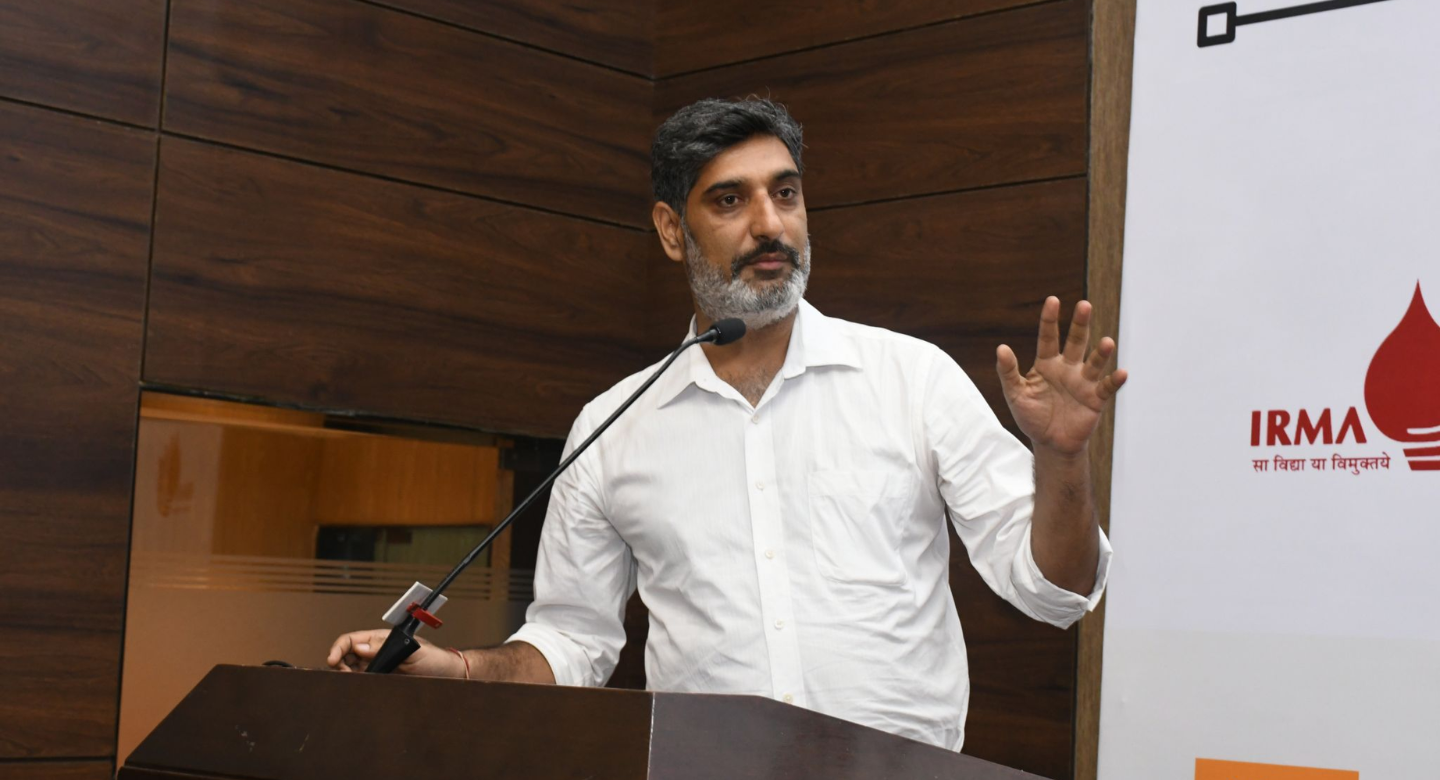
Nandan Bhat, an avid trekker, often found solace in nature’s lap. However, over the years, he began to notice a disturbing trend—once-pristine trekking trails were increasingly littered with plastic waste, particularly non-recyclable plastic bags and wrappers. Unlike plastic bottles that had resale value and found takers, these flimsy, single-use plastics had no economic pull. They were left behind, marring the landscape and harming the environment.
This visual pollution left a deep impact on Nandan. A corporate professional at the time, he quit his job in 2013 and moved into the Corporate Social Responsibility (CSR) sector, determined to be part of the solution.
From Idea to Impact

While working on various CSR projects, Nandan encountered an inspiring initiative in Ratnagiri, where fishermen were engaged in upcycling marine plastic waste to create alternative livelihoods. This sowed the seed for what would eventually become EcoKaari.
In 2015, Nandan made his first attempt at upcycling plastic into fabric by training local households to weave plastic into textiles using handlooms. Although this initial venture didn’t sustain, he didn’t give up. Armed with experience, passion, and personal savings, he re-launched the idea in September 2020—this time as EcoKaari, combining “Eco” for eco-friendly and “Kaari” for kaarigari (craftsmanship).
The EcoKaari Way
EcoKaari follows a completely manual, artisanal process of upcycling plastic waste into fabric. Their approach not only prevents plastic from reaching landfills but also revives traditional handloom practices, creating sustainable livelihoods for artisans.
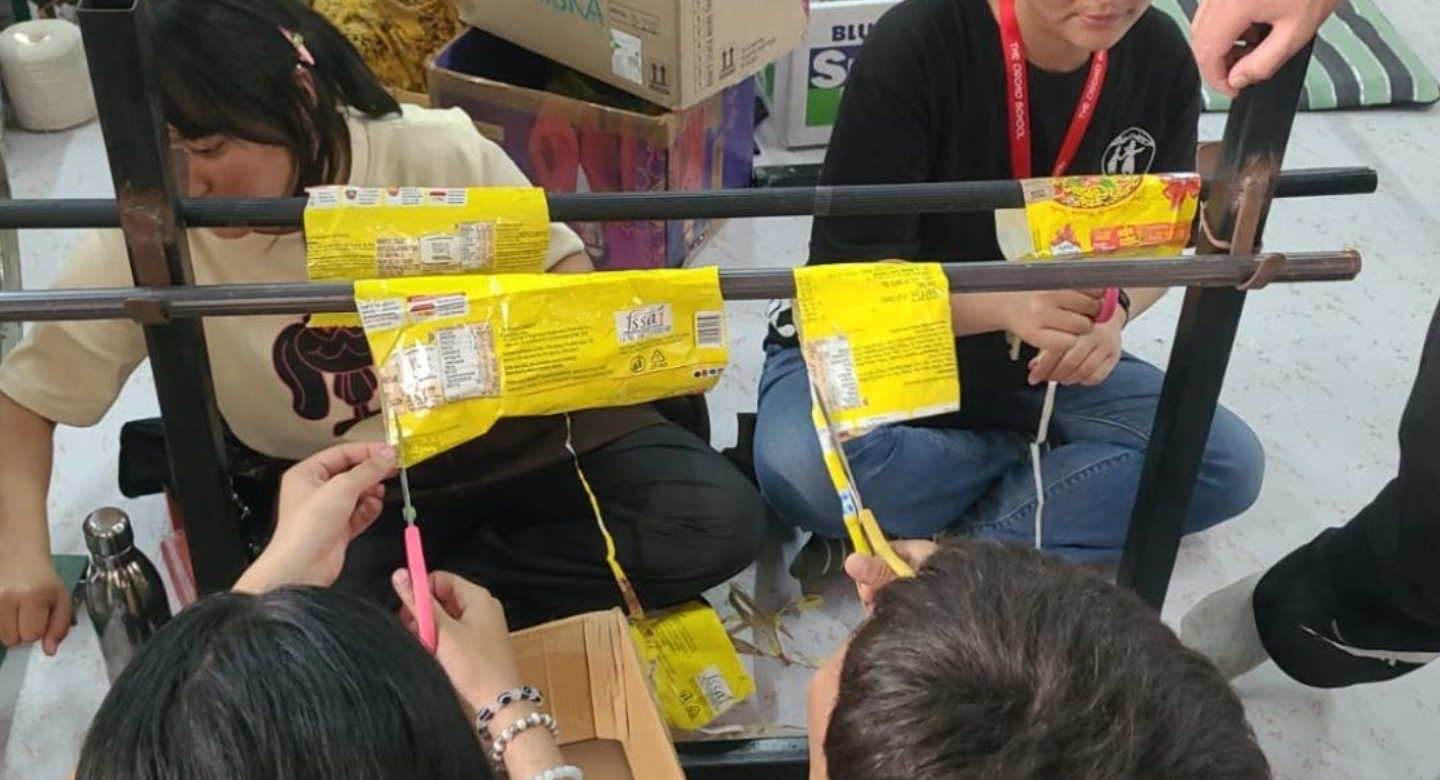
The Process:
- Plastic Collection:
EcoKaari sources single-use plastics like polythene bags, multi-layered wrappers (chips, cookies, detergent packs), gift wraps, and even old cassette tapes.
Sources include:- Collaborations with waste management organizations
- Corporate waste contributors
- Eco-conscious individuals who courier their waste
- Wholesale markets, when supply is short
- Sorting & Cleaning:
The collected waste is washed, sanitized, dried, and sorted by gauge and color—no dyes are used. The original colors of the plastics are preserved. - Upcycling & Weaving:
Plastics are cut into strips, spun on a charkha (wooden spindle), and then woven on traditional handlooms by skilled artisans into fabric. - Design & Production:
The fabric is then stitched into utility products—bags, wallets, home décor, accessories, and stationery—by the in-house design team.
Empowering Artisans
EcoKaari isn’t just about sustainability—it’s about social impact. Today, over 25 artisans work at the EcoKaari unit in Warje, Pune, many of whom had no previous access to stable income or creative work.
Take Mansi Waghmare, for instance—a 34-year-old artisan who now enjoys a steady income after years of unstable tailoring work. “This job gives me financial stability. I can support my children’s education and manage my household expenses with dignity,” she shares.
For these artisans, EcoKaari is not just a workplace—it’s a community of care, creativity, and confidence.
From Local Ripples to Global Reach
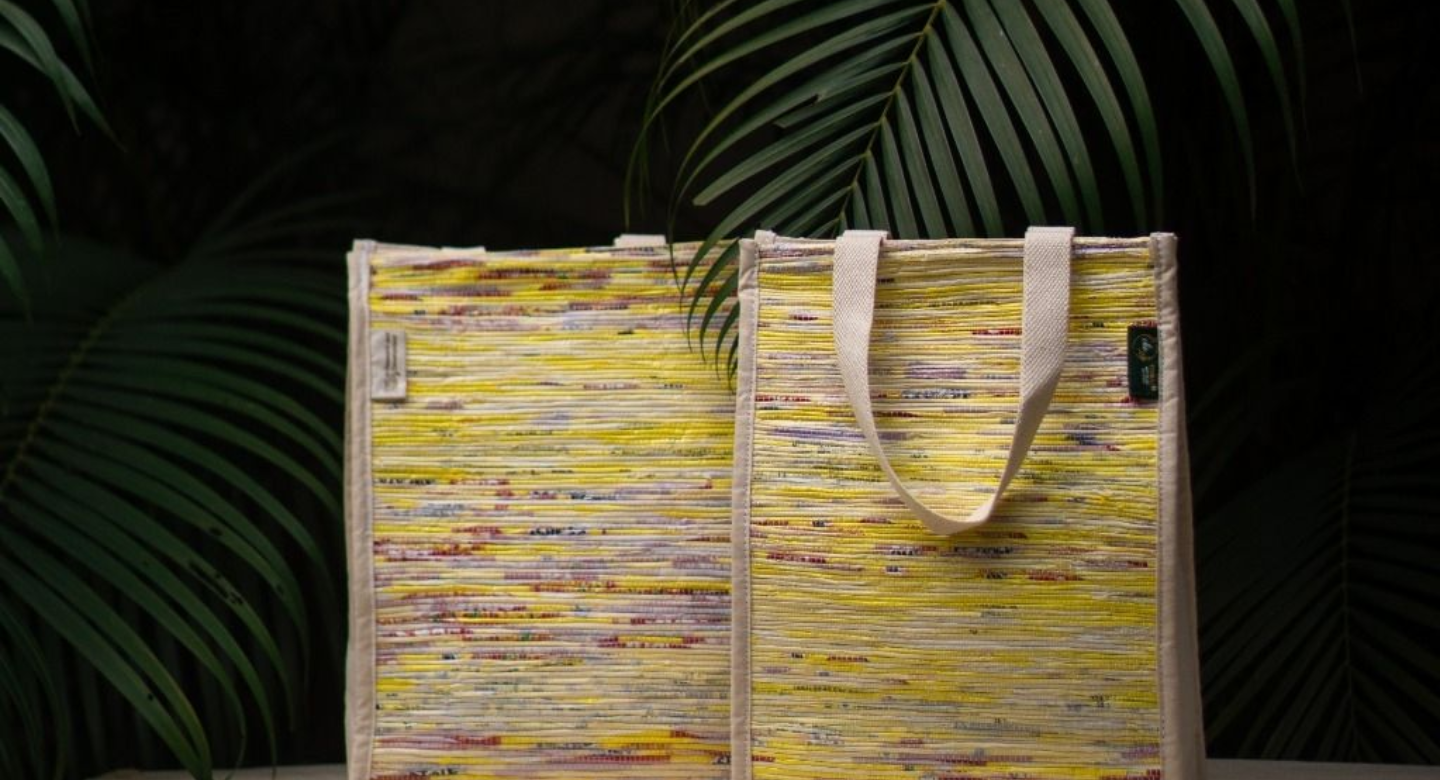
EcoKaari’s story gained national visibility during the pandemic, when a viral social media video drew attention to their work. What followed was a wave of support and interest—orders began pouring in from across India and even internationally.
Their beautiful, vibrant products—crafted entirely by hand from upcycled waste—have made their way to homes around the world, proving that fashion, function, and sustainability can coexist beautifully.
Why EcoKaari Matters
EcoKaari is more than a brand—it’s a movement. In a country where plastic pollution is one of the most pressing environmental concerns, EcoKaari offers a triple-bottom-line solution:
- Environmental: Reduces plastic waste from entering landfills, rivers, and oceans
- Social: Provides dignified, fair employment to women, youth, and marginalized artisans
- Cultural: Revives India’s heritage of handloom weaving and traditional craftsmanship
At the heart of EcoKaari lies a vision to prove that “waste is not waste until we waste it.”
The Bigger Vision
Nandan dreams of scaling EcoKaari across India by establishing more units in rural and semi-urban areas, creating green jobs, nurturing community pride, and keeping thousands of kilos of plastic out of nature.
“The problem of plastic is not going away anytime soon. But if we can turn it into opportunity—into livelihood, into beauty, into purpose—then we are truly making a difference,” says Nandan.
Conclusion: Wear the Change
EcoKaari is a reminder that true change doesn’t always require grand gestures. Sometimes, it starts with a bag of plastic, a loom, and a whole lot of hope.
Every EcoKaari product carries the essence of resilience—of people who turned trash into treasure, of hands that weaved a better future, and of a planet that got a little less plastic in its veins.
So the next time you’re looking for something meaningful—be it a gift, a bag, or a story to tell—choose one that carries purpose.
Support EcoKaari. Carry the change. Weave the impact.
Learn more or shop: Ecokaari
Accepting plastic waste contributions via courier!
Follow them on Instagram to see the transformation in action.: @ecokaari
Explore More Such Stories
D. Saravanan – Transforming Barren Land into a Thriving Forest
Sonam Wangchuk – The Changemaker Fighting Climate Change
Anshu Pragyan Das – India’s First Eco-Forest & Zero-Plastic Vision


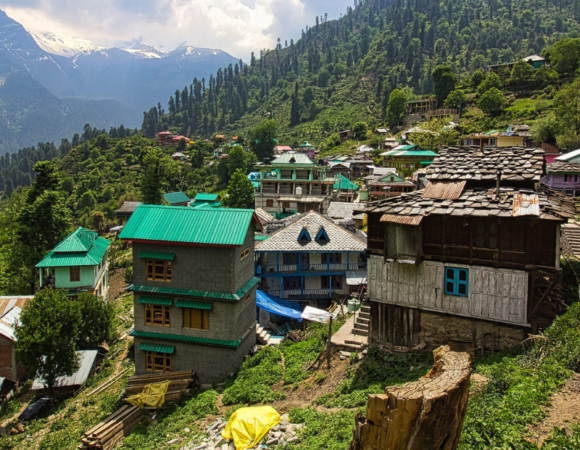
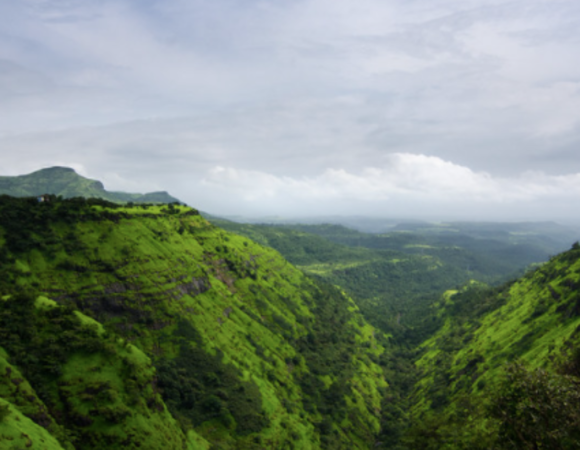
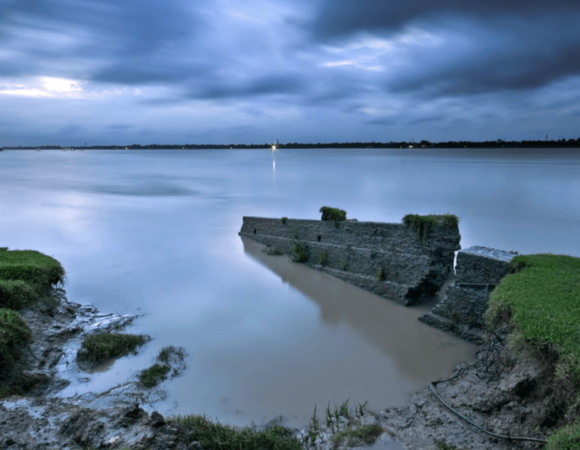
[…] EcoKaari: Weaving Waste into Worth – A Tale of Plastic, Passion & Purpose […]